There's No Business Like Show Business

Brief Synopsis
Cast & Crew
Walter Lang
Ethel Merman
Donald O'connor
Marilyn Monroe
Dan Dailey
Johnnie Ray
Film Details
Technical Specs

Synopsis
In 1919, Terrance and Molly Donahue, a husband-and-wife vaudeville team known as The Donahues, pursue both success and a stable family life, and as the years pass, their act becomes The Five Donahues with the addition of their children, Steve, Katy and Tim. Worried that the children will suffer from their nomadic lifestyle, Molly persuades Tim to send them to a Catholic boarding school, but the youngsters, missing both their parents and the thrill of performing, continually try to run away. Comforted by Father Dineen's assurances that the children are better off with them, Terry and Molly buy a home in New Jersey for their brood. When the Depression hits, however, Terry and Molly are forced to take whatever jobs they can find, including singing for radio advertisements and working at a carnival. Eventually, movie theaters come to their rescue by providing live stage entertainment before showings, and the Donahues are performing once again. In 1937, Tim graduates from high school, and the act again becomes The Five Donahues, with Katy concentrating on dancing, Steve demonstrating an admirable singing voice, and Tim being an all-around performer like his father. The family is a success and soon are performing in a show at the Hippodrome Theatre in New York, where their extravagent performance of "Alexander's Ragtime Band" thrills the audience. One night after a show, a worried Molly and Tim return home alone while Katy goes out on a date, Steve takes a walk and the womanizing Tim goes out with an older chorus girl. Katy and Tim both wind up at Gallagher's, where Tim teases hatcheck girl Victoria Hoffman about the unnatural elocution her singing teacher has instructed her to practice. Vicky forgets Tim's wisecracks when Eddie, her agent, informs her that he has persuaded famed producer Lew Harris to visit the club. With the help of her co-workers, Vicky gets onstage and impresses Lew and Tim with her singing. Backstage, Vicky learns that Tim is one of the well-known Donahues, but quickly dismisses him in order to talk business with Harris. Back at the Donahue home, Molly and Terry welcome Katy and then Steve, who informs his family that he wants to become a priest. Terry is distraught over his son's decision, but their discussion is interrupted by the appearance of Tim, who got drunk after leaving Vicky. Later, having accepted Steve's choice, the family throws him a farewell party, and The Four Donahues accept an engagement in Miami. Tim is thrilled to find that Vicky, now known as Vicky Parker, is also appearing there, and gives his approval for her to perform a number that Molly had planned for the Donahues to do. Vicky is a sensation and Tim falls in love with her, although she gently shrugs off his proposals so that she can focus on her career. Molly, still irate that Vicky "stole" her song, is further irritated upon learning that Harris is staging a Broadway revue around Vicky, and that Vicky wants Tim and Katy to join her. Realizing what a great opportunity it is, Terry persuades Molly to let the kids go, and soon Molly and Terry are performing on their own again while Tim and Katy rehearse with Vicky in New York. Katy begins dating lyricist Charlie Gibbs, and after Steve is ordained, he agrees to perform their wedding ceremony. Tim continues dating Vicky, but one night, she postpones their dinner in order to discuss a costume change with Harris. Vicky loses track of time and stands Tim up, and Tim, mistakenly assuming that Vicky is having an affair with Harris, gets drunk and becomes involved in a car accident. Molly and Terry learn of the accident just before the show is to open, and while Molly, who has been rehearsing with Katy, goes on in Tim's place, Terry goes to the hospital. There, he discovers his son only slightly injured but greatly embittered, and when Terry lectures him on his responsibilities, Tim's snide reply prompts Terry to slap him and storm out. The next day, Molly and Terry go to the hospital to pick up Terry but discover that he has vanished, leaving a note apologizing for his behavior. While Molly continues to perform in the show, the Donahues hire private detectives to search for Tim, and scour the clubs and bars of New York looking for him. After almost a year, Steve joins the Army as a chaplain, while Molly still blames Vicky for Tim's disappearance. Terry shows no interest when Molly tells him that the Donahues are being sought for a benefit performance at the Hippodrome before it is closed, and instead disappears to search for Tim. Weeks later, on the day of the benefit, Katy, who is close friends with Vicky, arranges for her to share a dressing room with Molly, and Vicky convinces Molly of her genuine love for Tim. Finally forgiving Vicky, Molly is also comforted by the arrival of Steve, who tells her not to lose hope that Tim and Terry will come home. Steve and Katy watch from the wings as Molly wows the crowd with a rendition of "There's No Business Like Show Business," then gesture wildly to her as Tim, wearing a Navy uniform, appears beside them. Molly rushes to embrace her son, who tells her that he had to work things out for himself, and the family is complete when Terry joins them. Thrilled to be reunited, The Five Donahues, with Vicky holding Tim's hand, go onstage and happily reprise their version of "Alexander's Ragtime Band."

Director

Walter Lang
Cast

Ethel Merman
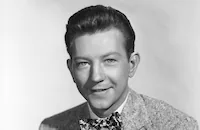
Donald O'connor

Marilyn Monroe

Dan Dailey
Johnnie Ray

Mitzi Gaynor

Richard Eastham
Hugh O'brian
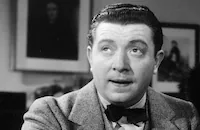
Frank Mchugh

Rhys Williams
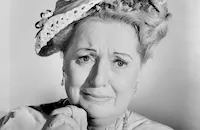
Lee Patrick

Eve Miller
Robin Raymond
Chick Chandler
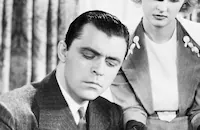
Lyle Talbot

John Doucette
George Melford
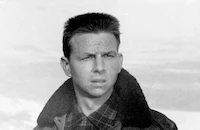
Alvy Moore
Henry Slate

Gavin Gordon
Mimi Gibson
Linda Lowell
John Potter
Jimmy Baird
Billy Chapin
Neal Mccaskill
Donald Gamble
Charlotte Austin
Bob Adler
Sandra Spence
Fred Rapport
Hal Taggert
Wilbur Mack
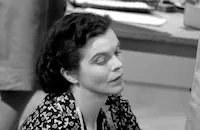
Dorothy Adams
Louis Quinn
Doris Kemper
Isabelle Dwan
Donald Kerr
Paul Glass
Jimmie Maddin
Ray Qualey
Duke Morgan
Dominic Frontiere
Gene Walsh
Eddie Oliver And His Band
Carmen Clifton
Tommy Walker
Crew
Robert Alton
Irving Berlin
Ray Bomba
Jerry Bryan
Etter D'orazio
Ken Darby
Ken Darby
John Decuir
Father John J. Devlin
Leonard Doss
Henry Ephron
Phoebe Ephron
Gaston Glass
Earle Hagen
Ray Kellogg
Charles Lemaire
Bernard Mayers
Alfred Newman
Lionel Newman
Ben Nye
Robert O'brien
Edward B. Powell
Stuart Reiss
Joe Rickards
Hal Schaefer
Ad Schaumer
Emmett Schoenbaum
Walter M. Scott
Leon Shamroy
Sol C. Siegel
Robert Simpson
Herbert Spencer
Murray Spivack
Rose Steinberg
Travilla
Lamar Trotti
Helen Turpin
E. Clayton Ward
Bob Wetherford
Lyle Wheeler
Miles White
Darryl F. Zanuck

Photo Collections
Videos
Movie Clip



Trailer
Film Details
Technical Specs

Award Nominations
Best Costume Design
Best Score
Best Writing, Screenplay
Articles
There's No Business Like Show Business
Not thrilled by the script and reluctant to compete with such musical-comedy heavyweights as Ethel Merman, Donald O'Connor, Mitzi Gaynor and Dan Dailey, Monroe balked at doing Business and Fox considered Sheree North as a replacement. Monroe finally agreed to do the film in exchange for the promise that her next vehicle would be a film version of the hit stage comedy The Seven Year Itch (1955), to be directed by the brilliant Billy Wilder. That movie, of course, was the one that would lift Monroe to the heady new heights of stardom she maintained until her untimely death in 1962.
There's No Business Like Show Business has a score by Irving Berlin, who adored Merman and had written two Broadway shows expressly for her: Annie Get Your Gun in 1946 and Call Me Madam in 1950. Business takes its title from the climactic number of the former show, which became a kind of anthem for theater people after Merman first belted it out onstage.
A huge star on Broadway, the brassy Merman had limited success in films but had shone in Fox's film version of Call Me Madam (1953), which also had costarred Donald O'Connor and was directed by Walter Lang, in whom she had "almost mystical faith," according to biographer Bob Thomas. The success of Madam led to her top-billed appearance in Business, although she had her work cut out for her in keeping the sexy Monroe and dynamic Gaynor from stealing her thunder. O'Connor and Dailey are as smoothly accomplished as ever, although the performance of "sob singer" Johnnie Ray (a sensation of the day) was described by a New York Times reviewer as "embarrassing," with moments in which "your flesh is likely to crawl."
The film's sentimental story revolves around The Donahues, a performing family in vaudeville, with Merman and Dailey as the parents and O'Connor, Gaynor and Ray as their unlikely offspring. The family faces tumultuous times as O'Connor falls for ambitious showgirl Monroe and Ray decides that his true calling is to be a priest.
The constant, dazzling production numbers are set to such Berlin standards as "Alexander's Ragtime Band," "A Pretty Girl Is Like a Melody," "When the Midnight Choo-Choo Leaves for Alabam" and "Remember." Perhaps the best-remembered number is Monroe's languorous delivery of "Heat Wave" (a song originally intended for Merman). Accompanied by a crew of male dancers, Marilyn turns up the heat in a black bra and a flamenco skirt split almost to her waist. "Anything You Can Do," a number from Annie Get Your Gun, was filmed with Merman and Dan Dailey but not included in the film's final print.
According to Thomas, Merman was philosophical about the attention being paid to Monroe. "Hell, she's the one we need to sell the picture," she told a friend. However, she resented what she considered Monroe's lack of professionalism, which included chronic tardiness and her reliance upon her acting coach, Natasha Lytess, instead of Lang. Monroe refused to wear costumes designed for her by Miles White and insisted that Travilla create new ones, including the "Heat Wave" outfit.
Merman won a small victory one day when Joe DiMaggio, then married to Monroe, visited the set and refused to be photographed with his wife. Instead, he wanted to pose with Merman -- "my favorite star!" Thomas writes that, as Monroe's tardiness grew ever more acute, Mitzi Gaynor "found a way to keep Ethel cool. Whenever Marilyn wouldn't come out of her dressing room, I gave Ethel a wink, hinting that something naughty was going on in there. Of course that wasn't true, but if Ethel thought maybe some hanky-panky was going on, she could enjoy the situation."
More off-camera drama was provided by the fact that Donald O'Connor had separated from Gwen Carter, his wife of ten years, and she and Dan Dailey had begun dating. After filming wrapped, the O'Connors divorced and Dailey and Carter were married.
Although now considered a prime example of a big, splashy musical of its period, There's No Business Like Show Business was not well-received at the time by the public, who probably felt that the Berlin/Merman style had become outdated. The movie was Oscar®-nominated for Best Costume Design, Color (Charles Le Maire, Travilla and Miles White), Best Music, Scoring of a Musical Picture (Alfred Newman and Lionel Newman) and Best Motion Picture Story (Lamar Trotti).
Producer: Sol C. Siegel
Director: Walter Lang
Screenplay: Phoebe Ephron, Henry Ephron, based on a story by Lamar Trotti
Cinematography: Leon Shamroy
Editing: Robert L. Simpson
Art Direction: John DeCuir, Lyle R. Wheeler
Costume Design: Travilla, Miles White
Cast: Ethel Merman (Molly Donahue), Donald O'Connor (Tim Donahue), Marilyn Monroe (Vicky), Dan Dailey (Terence Donahue), Johnnie Ray (Steve Donahue), Mitzi Gaynor (Katy Donahue), Hugh O'Brian (Charles Biggs), Richard Eastham (Lew Harris), Frank McHugh (Eddie Dugan).
C-117m.
by Roger Fristoe

There's No Business Like Show Business
Quotes
Trivia
Marilyn Monroe was promised the lead role in Seven Year Itch, The (1955) if she appeared in this film to boost the box-office potential. The role of Vicky was written especially for this purpose, and songs such as "Heatwave" originally intended for Molly were assigned to her.
Marilyn Monroe's voice on "There's No Business Like Show Business" was dubbed by singer Dolores Gray because Monroe's voice was under contract to another record company that would not release the rights for use in the movie.
Notes
The film's opening title cards read: "Darryl F. Zanuck presents A CinemaScope Production Irving Berlin's There's No Business Like Show Business.." At the end of the opening credits, a written prologue reads: "Back in 1919, Vaudeville was a very big part of Show Business. Our story is about The Donohues, a very little part of vaudeville." Voice-over narration by Ethel Merman and Dan Daily, as their characters "Molly" and "Terry," is heard intermittently throughout the picture. In May 1951, Hollywood Reporter announced that Berlin intended to sign a three-picture deal with Twentieth Century-Fox, for which he would supply the original stories and complete scores. According to February 1952 Hollywood Reporter news items, Fox paid $500,000 for the use of Berlin's songs and the composer's participation in the production, although in March 1953, Hollywood Reporter noted that Berlin had "called off all negotiations" for the three-picture contract, which "was close to the signing stage," because he wanted "complete autonomy" for his future projects.
Although some Hollywood Reporter news items stated that Berlin had written five new songs for the picture, only two new songs-"A Man Chases a Girl Until She Catches Him" and "A Sailor's Not a Sailor 'Till a Sailor's Been Tattooed"-were in the completed picture. The film's other songs were written by Berlin over the course of more than fifty years, with some written specifically for Broadway shows and earlier Fox films. Some contemporary and modern sources list "If You Believe" as a new song written by Berlin for the film, but according to studio publicity, he had written it twenty-five years previously. The song had never been presented onscreen before, however, and had been performed only in churches. Studio publicity also reported that Berlin would present the following spoken introduction to the film: "Show Business isn't just scenery, lights, greasepaint and glitter, it's heart. Because, if your show hasn't got a heart, you haven't got a show. That's what I tried to convey when I wrote the song `There's No Business Like Show Business.'" Although an August 1953 Hollywood Reporter news item announced that Berlin was filming the introduction, it does not appear in the completed picture.
Studio publicity announced that the Berlin song "Anything You Can Do, I Can Do Better" was to be in the picture, and although modern sources note that the production number, sung by Merman and Dailey, and danced by Donald O'Connor and Mitzi Gaynor, was filmed, it was cut before the picture's release. Modern sources also note that the songs "But I Ain't Got a Man" and "I Can Make You Laugh" were considered for inclusion but were deleted before final release. The film's title song comes from Berlin's hit Broadway musical Annie Get Your Gun (New York, 16 May 1946), which starred Merman. "Anything You Can Do, I Can Do Better" also came from Annie Get Your Gun.
The following information comes from Hollywood Reporter news items: Lamar Trotti was originally assigned to produce the picture as well as write its screenplay, but after his death in 1952, Sol C. Siegel was named the producer, and Henry and Phoebe Ephron completed the screenplay. Production on the picture was delayed from June 1953 until rehearsals began in March 1954 due to the illness of director Walter Lang. According to a February 1952 Variety article, Betty Grable was originally set to star in the picture, with Berlin seeking Fred Astaire as her co-star. Numerous performers were considered for, or tested for, roles in the picture, including Gil Lamb, Van Johnson, Don Crichton, Sheree North and Lila King, although they do no appear in the completed picture. Hollywood Reporter news items include the following actors and dancers in the cast, but their appearance in the released film has not been confirmed: Eleanor Moore, Buddy Spence, Joanne Jordan, Jean Acker, Dorothy Phillips, Stuart Hall, Lillian Ten Eyck, Betty Rome, Marjorie Jackson, Jean Gale, Cosmo Sardo, Harlan Hoagland, Margot Charlin, Peggy Jean Gordon, Virginia Lee, Betty Scott, Bob McCord, Jerry Lane, Marie Ardell, Joyce de Brott, Fay Antaky, Louise Carle, Charna Haven, Nolan Leary, Vi Petrie, Matt Mattox, Buzz Miller, Wilson Morelli, Frank Radcliff and Jack Tygett. Studio publicity reported that almost 750 dancers were used in the production.
According to modern sources, Berlin saw a photograph of Marilyn Monroe and specifically requested her for the part of "Vicky." Monroe, who had been suspended by Fox for refusing to appear in the proposed musical Pink Tights (which was never made), did not want to be cast in another musical, but studio chief Darryl F. Zanuck promised Monroe that if she appeared in There's No Business Like Show Business, she could have the lead in The Seven Year Itch. Modern sources also note that due to contractual problems, Dolores Gray sang Monroe's song for the soundtrack album of There's No Business Like Show Business.
The picture marked the last Fox film for Sol C. Siegel, who had been under a long-term contract to the studio. Mitzi Gaynor was also released from her contract with the studio during production. A April 16, 1954 Hollywood Reporter news item announced that Gaynor's release came at her own request, so that she could pursue a nightclub and Broadway career, but in a modern interview, Gaynor stated that she was fired by the studio. In 1958, however, she returned to the studio to star in South Pacific. Although There's No Business Like Show Business was a box-office success and received Academy Award nominations for Best Costume Design (Color), Best Music (Scoring of a Musical Picture) and Best Writing (Motion Picture Story), Berlin never wrote another score for a film. Modern sources add Gene Lester (Pub stills) and Red Crawford (Assistant Camera) to the crew and note that Hal Schaefer, who is credited onscreen with vocal arrangements, worked as Monroe's music coach.

Miscellaneous Notes
Released in United States 1998
Released in United States Winter December 1954
Shown at Los Angeles County Museum of Art (LACMA) as part of program "Twentieth Century Fox and the Golden Age of CinemaScope" July 3 - August 15, 1998.
CinemaScope
Released in United States 1998 (Shown at Los Angeles County Museum of Art (LACMA) as part of program "Twentieth Century Fox and the Golden Age of CinemaScope" July 3 - August 15, 1998.)
Released in United States Winter December 1954














